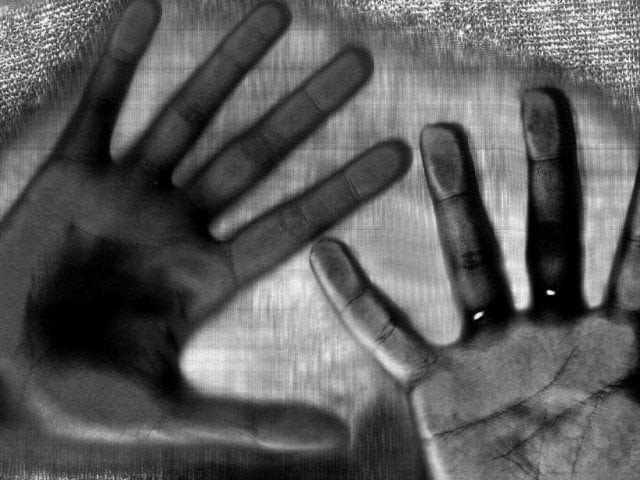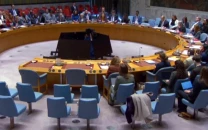Use proper language for rape victims: SC asks courts
Says sexual history of rape survivors should not be unnecessarily dragged into a case

The Supreme Court has asked courts neither to use inappropriate expressions for rape victims nor to drag the sexual history of a rape survivor into a case of sexual assault.
“The courts should also discontinue the use of painfully intrusive and inappropriate expressions, like ‘habituated to sex’, ‘woman of easy virtue’, ‘woman of loose moral character’, and ‘non-virgin’, for the alleged rape victims even if they find that the charge of rape is not proved against the accused.
“Such expressions are unconstitutional and illegal," said an 11-page judgment authored by Justice Syed Mansoor Ali Shah. The judgment said a woman, whatever her sexual character or reputation may be, is entitled to equal protection of law.
“No one has the license to invade her person or violate her privacy on the ground of her alleged immoral character. Even if the victim of rape is accustomed to sexual intercourse, it is not determinative in a rape case; the real fact-in-issue is whether or not the accused committed her rape.”
Also read: Govt sets up anti-rape cells in every district
The order said the fact that a victim had lost her virginity earlier does not give to anyone the right to rape her. In a criminal trial relating to rape, it is the accused that is on trial and not the victim.
The court said dragging the sexual history of the rape survivor into the case by making observations about her body including observations like “the vagina admits two fingers easily” or “old ruptured hymen” is an affront to the reputation and honour of a rape survivor.
It said such observations violate Article 4(2)(a) of the Constitution, which mandates that no action detrimental to the body and reputation of a person shall be taken except in accordance with law.
"Similarly Article 14 of our Constitution mandates that dignity shall be inviolable, therefore, reporting sexual history of a rape survivor amounts to discrediting her independence, identity, autonomy and free [of] choice…
“Thereby degrading her human worth and offending her right to dignity guaranteed under Article 14 of the Constitution. [This] right to dignity under Article 14 of the Constitution is an absolute right and not subject to law.” The order said dignity means human worth.
“Simply put every person matters. No life is dispensable, disposable or demeanable. Every person has the right to live, and the right to live means right to live with dignity.
"A person should live as ‘person’ and no less. Human dignity hovers over our laws like a guardian angel; it underlies every norm of a just legal system and provides an ultimate justification for every legal rule.
The court said the right to dignity is the crown of fundamental rights under the Constitution and stands at the top, drawing its strength from all fundamental rights under our Constitution.
“And yet standing alone and tall, making human worth and humanness of a person a far more fundamental a right than the others, a right that is absolutely non-negotiable," said the judgment.
The SC said it appears that courts had been allowing opinion evidence of medical experts to be brought on record in rape cases in view of Article 151(4) of the Qanun-e-Shahadat Order, 1984 (QSO).
It noted that Section 155(4) provided that when a man is prosecuted for rape or an attempt to ravish, “it may be shown that the victim was of generally immoral character to impeach her credibility.”
The court said this section had now become inadmissible in evidence after the omission of Article 151(4) of the QSO by the Criminal Law Amendment (Offences Relating to Rape) Act, 2016.
The SC noted that earlier a full bench of the Federal Shariat Court had also declared the provisions of Article 151(4) of the QSO to be repugnant to the Injunctions of Islam in Mukhtar Ahmad case.
"The omission of Article 151(4) of the QSO implies prohibition on putting questions to a rape victim in cross-examination, and leading any other evidence, about her alleged “general immoral character” for the purpose of impeaching her credibility.
"Section 12(3) of the Punjab Witness Protection Act, 2018 has specifically provided that ‘the court shall forbid a question to the victim of a sexual offence relating to any sexual behavior of the victim on any previous occasion with the accused or any other person, unless such a question, in the opinion of the court, is a relevant fact in the case”.
The verdict said evidence relating to sexual history should therefore not be admitted in order to draw inferences supporting the “twin myths”, namely, that by reason of that sexual history it is more likely that the complainant may have consented or become less worthy of belief.
The court also said omission of Article 151(4) of the QSO by the legislature leaves no doubt in discovering and ascertaining the intention of the legislature that in a rape case the accused cannot be allowed to question the complainant about her alleged “general immoral character”.
Also read: Differently-abled girl ‘raped, filmed’ in Lodhran
"Declaration of the Federal Shariat Court as to the provisions of Article 151(4) of the QSO, since omitted, also bars such questions. However, it may be important to underline that the omission of Article 151(4) of the QSO implies prohibition on questions put in cross-examination or the defence evidence led to the reputation of the complainant to show her as of “generally immoral character”.
“[However, it does not apply to] the questions put or defence evidence led to prove that some other person, and not the accused, is the perpetrator and source of semen or injury found on the body of the complainant…
“Nor does that omission completely shun the admissibility of questions in cross-examination or defence evidence, on the previous sexual relation of the complainant with the accused when the accused takes the defence, and intends to prove that the complainant consented to the sexual activity...”
It said Section 12(3) of the Punjab Witness Protection Act, 2018 codifies this position when it obligates the court to forbid a question to the victim of a sexual offence relating to any sexual behavior of the victim on any previous occasion with the accused or any other person…
“But [it] also empowers the court to allow such a question if, in the court’s opinion, it is a relevant fact in the case forbid such questions if it finds that they are ‘indecent’ or ‘scandalous’, but can allow them if they relate to facts-in-issue or to matters necessary to be known in order to determine whether or not the facts-in-issue existed.”
However, while allowing or disallowing such questions, the SC said, the court must be conscious of the possibility that the accused may have been falsely involved in the case.
“[The court] should balance the right of the accused to make a full defence and the potential prejudice to the complainant’s rights to dignity and privacy, to keep the scales of justice even for both,” it added.


















COMMENTS
Comments are moderated and generally will be posted if they are on-topic and not abusive.
For more information, please see our Comments FAQ